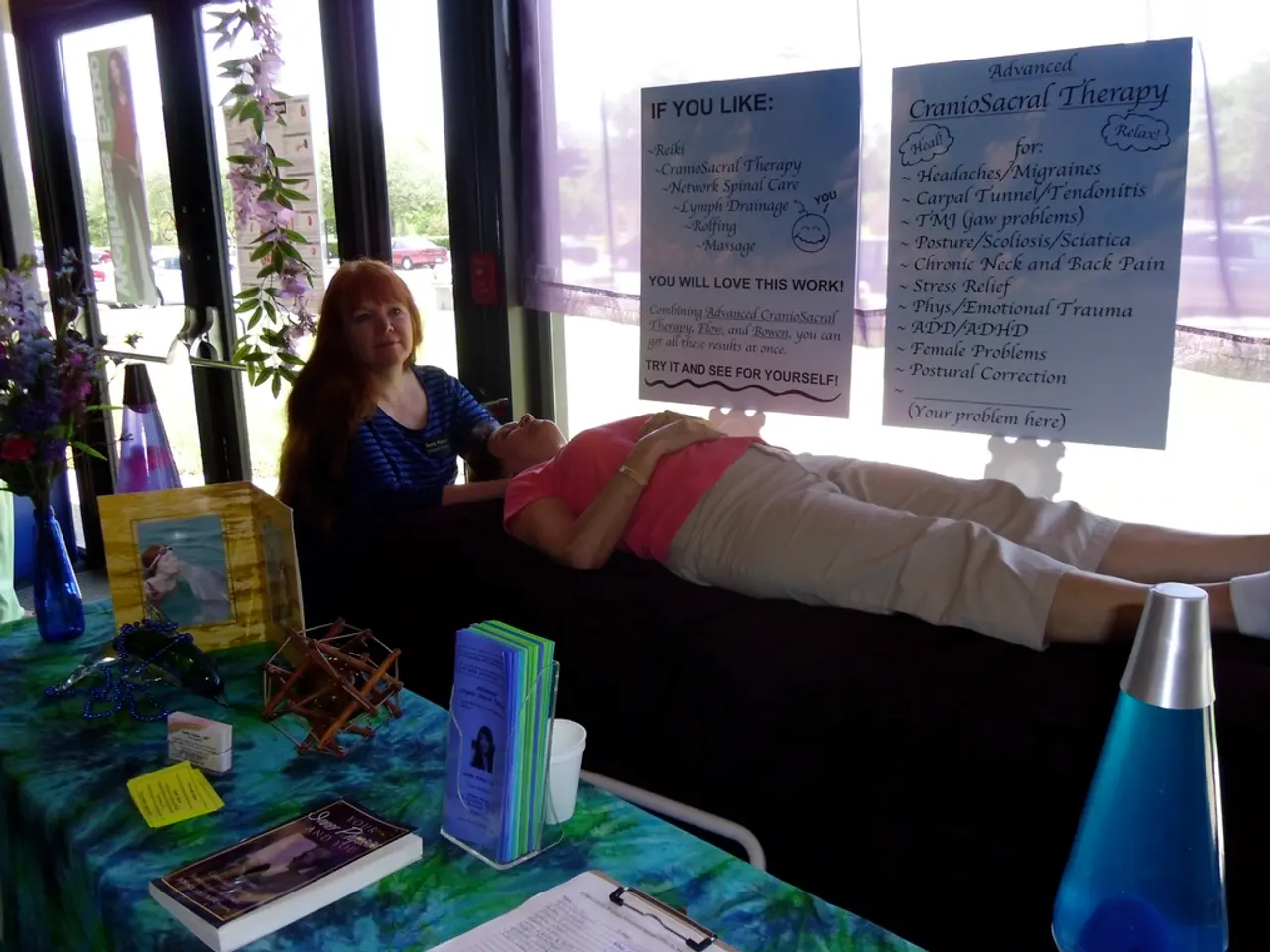Exploring the Positive Impacts of Consistent Sexual Activity During Menopause
Regular sexual activity can help alleviate symptoms of genitourinary syndrome of menopause (GSM), a condition that affects many women during and after menopause. GSM can cause symptoms such as vaginal dryness, vulvar atrophy, urinary urgency or incontinence, itching, burning, pain, decreased lubrication, and changes in the skin's appearance for both the vulva and vagina.
Besides hormone therapy, several nonhormonal alternatives and self-care strategies are recommended for managing GSM symptoms. Vaginal moisturizers, used regularly to ease dryness and irritation, can help restore moisture to the vaginal area, with external moisturizers helping the vulva area and internal moisturizers being inserted into the vagina. Water-based lubricants during intercourse can also reduce discomfort.
Avoidance of harsh soaps and wearing breathable fabrics can minimize irritation, while pelvic floor exercises like Kegels can support genitourinary health. Maintaining good hydration and balanced nutrition, quitting smoking, and managing stress levels are also important for maintaining sexual health in women.
Other nonhormonal treatments include selective estrogen receptor modulators (SERMs) like ospemifene and vaginal DHEA (prasterone), which promote tissue rebuilding without systemic hormone replacement.
In summary, regular sexual activity acts as a natural, nonpharmacologic approach to help maintain vaginal tissue health in GSM, while nonhormonal treatments such as moisturizers, lubricants, and lifestyle modifications provide additional symptom relief without the risks associated with systemic hormone therapy.
Dr. Monica Christmas, associate medical director for The Menopause Society, emphasizes the importance of diagnosing and treating GSM. She states that local low-dose vaginal estrogen therapy is safe and highly effective at alleviating bothersome vulvovaginal symptoms contributing to pain and avoidance of intercourse.
It's important to note that optimal sexual health is integral to overall well-being, and it is imperative to recognize the effect these symptoms can have on women who aren't sexually active. Libido-boosting exercises, such as hip thrusts, can increase blood flow to the pelvis, enhancing women's pleasure zones.
If petroleum-based products are used for lubrication, they can break down latex condoms on contact, so it's best to avoid them. Similarly, it's advisable to avoid lubricants containing glycerin or warming properties, as they can irritate the sensitive tissue of the vagina.
Lastly, clinical trials have indicated minimal to no systemic absorption of the topical estrogen therapy used to treat GSM, resulting in no increased risk of breast cancer recurrence (Johns Hopkins). Regular sexual activity, coupled with nonhormonal treatments and lifestyle modifications, can significantly improve the quality of life for women experiencing GSM symptoms.
- Dr. Monica Christmas highlights the significance of nonhormonal treatments, such as vaginal moisturizers and lubricants, for managing symptoms of genitourinary syndrome of menopause (GSM) without the risks associated with systemic hormone therapy.
- Maintaining overall well-being requires optimal sexual health, and even though some women may not be sexually active, acknowledging the impact of genitourinary syndrome of menopause (GSM) symptoms on their pleasure zones is crucial.
- In the health-and-wellness field, sexual health is of particular importance for women experiencing menopause, as libido-boosting exercises and proper lubricant choices can help alleviate symptoms associated with genitourinary syndrome of menopause (GSM) while promoting sexual wellness.




